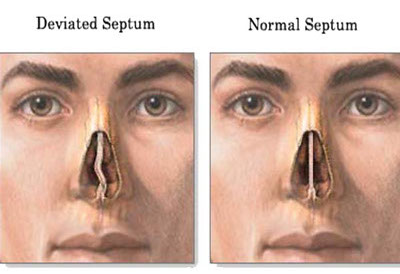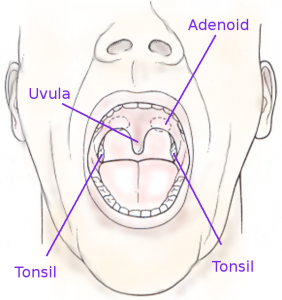6 Most Common Causes of UARS (Upper Airway Resistance Syndrome)
Learn about the 6 most common causes of UARS (upper airway resistance syndrome).
~3 minute read
posted on October 11, 2019
What causes UARS?
While there are a handful of causes of UARS, they all share one similarity: excessive resistance in your airways. This is sure to cause sleep fragmentation and other UARS symptoms.
This resistance can almost be like breathing through a straw while you're asleep. No matter how much effort you put in to breathe, sometimes you just can't get enough air.
The tricky part about treating UARS is finding out what exactly is causing it in the first place!
Thankfully you should be able to treat your UARS with a CPAP machine or oral appliance regardless the exact cause. All treatments of UARS have one goal in mind: improve airflow to reduce respiratory distress.
6 Most Common Causes of UARS
There are so many causes of UARS, finding out what's causing yours can be like finding a needle in a haystack.
Some peoples' airway resistance may stem from a deviated septum, while others may have poor craniofacial development which causes the lower jaw to be recessed.
1. Nasal Congestion
Do you often find yourself laying down at night and suddenly your nose is all kinds of stuffed up?
If you are struggling to breathe through your nose for whatever reason such as allergies, illness, or a deviated septum, it is bound to have a negative impact on your sleep.
When you can't breathe through your nose during sleep, we naturally begin to breathe through our mouths. Unfortunately, mouth breathing is far from ideal and can cause dry mouth in the morning, snoring, and unrefreshing sleep.
I personally am allergic to dust, and had to invest in hypoallergenic pillow and mattress covers to stop myself from being completely stuffed up right after laying down.
I've also heard many great things about allergy shots to help improve sleep quality in those with nasal congestion issues.
2. Obesity or Overweight
Obesity is defined by a body mass index (BMI) greater than 30. An overweight BMI is 25-30.
You can use a BMI calculator to find yours.
Being overweight is one of the most common causes for obstructive sleep apnea, and UARS is no different.
Even if you are only slightly overweight, every pound you lose is sure to benefit your sleep quality.
3. Deviated Septum
A deviated septum is a condition in which the bone and cartilage that divide the nasal cavity into two is crooked or off-center which can cause difficulty breathing through the nose.

You may have a deviated septum and not even know it... if you've ever endured a pretty nasty injury to the nose when you were younger, there's a chance you do.
Symptoms of a deviated septum are: obstruction of one or both nostrils, nosebleeds, facial pain, noisy breathing, awareness of nasal cycle, and only being able to sleep on a particular side.
If your doctor determines a deviated septum to be the cause of your UARS, it's pretty safe to say that the reconstructive surgery will greatly improve your sleep and change your life.
4. Narrow Nasal Passageways
Unfortunately, some people are just born with narrower-than-usual nasal passageways.
In this case, you may want to ask your doctor about surgical options such as turbinate reductions.
5. Small, Crowded Jaws
Small or underdeveloped jaws are one of the most common causes of UARS according to this study.
6. Enlarged adenoids or tonsils
Your adenoids are a small patch of tissue found high up in the throat, just behind your nose. Together with your tonsils, they make up your body's lymphatic system.

Enlarged adenoids and/or tonsils is one of the most common causes of UARS, and those with this issue can often undergo removal surgery, tonsillectomy or adenoidectomy, with good success.